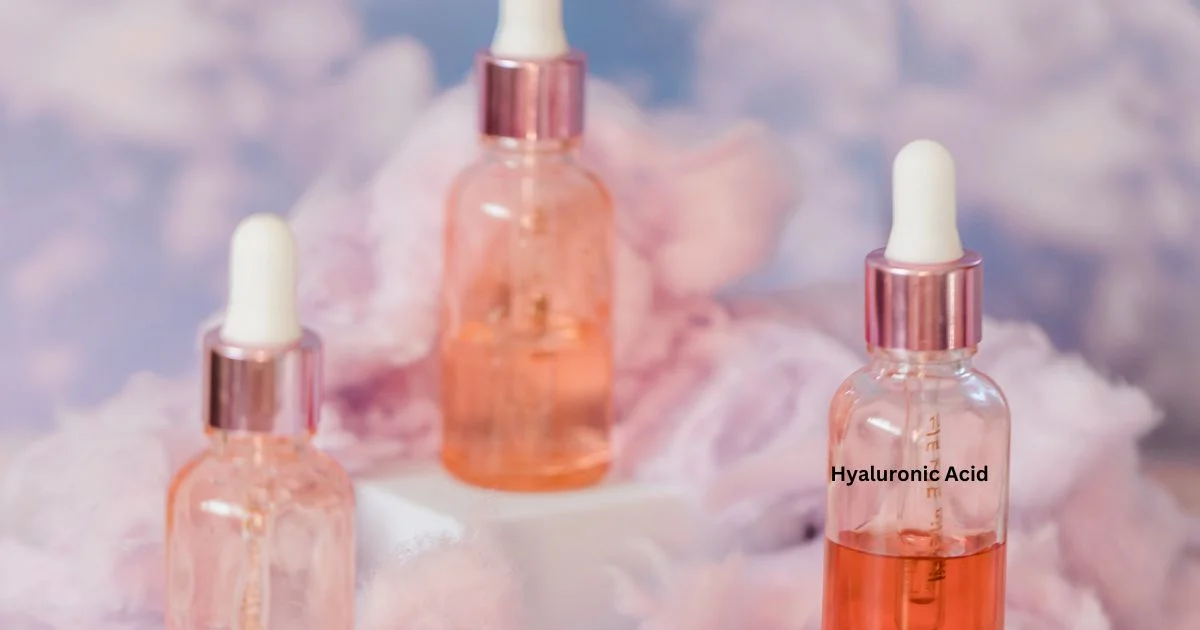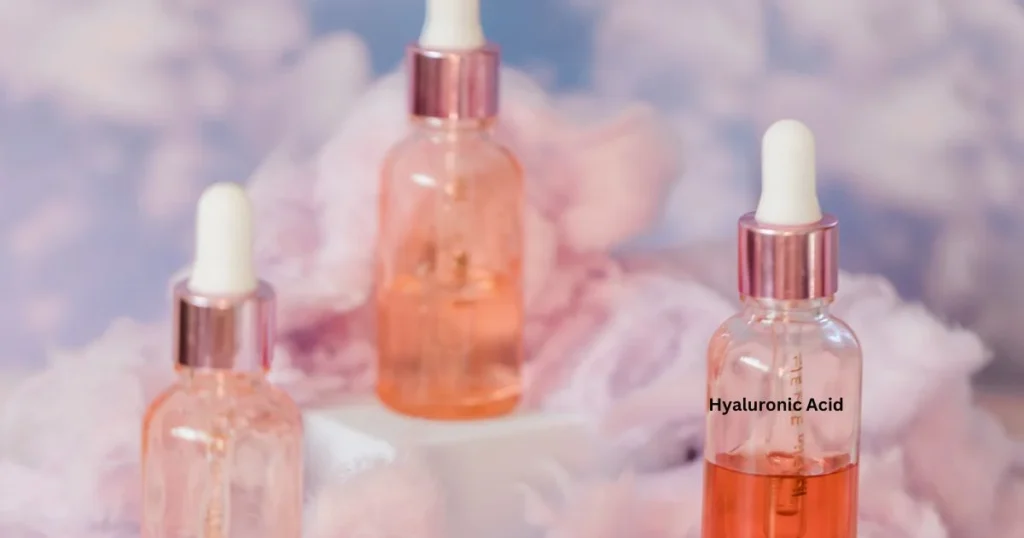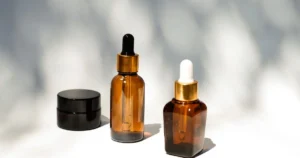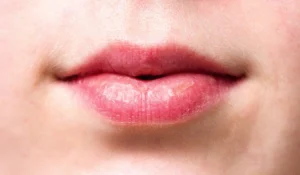Hyaluronic Acid Benefits for Acne: Unlocking the Power of Skincare
Hyaluronic acid is a substance that naturally exists in our bodies, and it’s found in places like our skin, connective tissues, and eyes. It’s like a special ingredient that helps keep these parts of our body healthy and working well. It plays a crucial role in maintaining moisture, hydration, and elasticity in these areas. Known for its remarkable ability to retain water, hyaluronic acid has gained significant attention in the beauty and skincare industry. Its powerful hydrating properties make it a popular ingredient in serums, creams, and dermal fillers, helping to plump and rejuvenate the skin.
Beyond skincare, hyaluronic acid also has medical applications, including joint lubrication and treatment for certain eye conditions. With its versatile benefits and widespread usage, hyaluronic acid has become a sought-after compound in the pursuit of healthy, youthful-looking skin. In this article, we will explore the benefits of hyaluronic acid benefits for acne and how it can help improve your skin’s health.
 2. Understanding Acne: A Brief Overview
2. Understanding Acne: A Brief Overview
Acne occurs when hair follicles become clogged with oil and dead skin cells, leading to the formation of pimples, blackheads, and whiteheads. It is often caused by factors such as hormonal imbalances, excessive sebum production, bacteria, and inflammation. Acne can appear on the face, chest, back, and other areas of the body.
You may also like..Hyaluronic Acid and Retinol: Unlocking the Secrets to Youthful Skin Retinol for Beginners: Unlocking the Secrets to Youthful Skin The Ultimate Guide to Retinol Moisturizer: Achieve Radiant and Youthful Skin Can Niacinamide and Retinol be used together?The Dynamic Duo for Skincare
3. What is Hyaluronic Acid?
Hyaluronic acid is a substance that naturally exists in our bodies, and it’s found in places like our skin, connective tissues, and eyes. It’s like a special ingredient that helps keep these parts of our body healthy and working well .It is known for its incredible ability to retain moisture, with one molecule capable of holding up to 1000 times its weight in water. This makes hyaluronic acid a vital component for maintaining skin hydration, plumpness, and elasticity.
4. The Role of Hyaluronic Acid in Acne Treatment
1 .Moisture and Hydration
Acne-prone skin often experiences excessive dryness due to the use of drying treatments or imbalances in oil production. Hyaluronic acid acts as a humectant, drawing and retaining moisture from the environment into the skin. Adding hyaluronic acid to your skincare routine is a great idea because it does wonders for your skin. It helps to lock in moisture, which keeps your skin all nice and hydrated. And don’t worry, it won’t block your pores or make your skin go crazy with breakouts. Instead, it’s like a gentle friend that keeps your skin happy and balanced. So, if you want that healthy, plump, and glowy look, hyaluronic acid is definitely worth giving a try!
2.Reducing Inflammation and Scarring
Inflammation plays a significant role in the development of acne. Hyaluronic acid possesses anti-inflammatory properties that can help calm irritated skin and reduce redness. By minimizing inflammation, it may also aid in preventing post-acne scarring, allowing the skin to heal more effectively.
3. Promoting Skin Repair and Regeneration
Acne can leave behind damaged skin, including hyperpigmentation, rough texture, and uneven tone. Hyaluronic acid supports the skin’s natural repair processes by promoting collagen production and aiding in the regeneration of healthy skin cells. This can contribute to a smoother complexion and a reduction in the appearance of acne scars over time.
5. How to Incorporate Hyaluronic Acid into Your Skincare Routine
To benefit from hyaluronic acid’s potential for acne treatment, it’s essential to incorporate it into your daily skincare routine. Here are some steps to follow:
- Start with a clean face by using a gentle cleanser.
- Apply a hyaluronic acid serum to damp skin.
- Gently massage the serum into your face and neck, focusing on areas prone to acne.
- Allow the serum to absorb fully before applying other skincare products.
- Follow with a moisturizer to seal in the hydration.
- Use sunscreen during the day to protect your skin from harmful UV rays.
6. Choosing the Right Hyaluronic Acid Products
When selecting hyaluronic acid products, it’s important to consider a few factors:
- Opt for products with a high concentration of hyaluronic acid for maximum effectiveness.
- Look for serums or moisturizers with a lightweight, non-greasy formula that won’t clog pores.
- Consider products that are free of additional irritants or potential acne triggers, such as fragrances or oils.
- Read reviews and seek recommendations from trusted sources or skincare professionals.
7. Tips for Using Hyaluronic Acid Safely and Effectively
To make the most of hyaluronic acid for acne treatment, keep the following tips in mind:
- Start with a patch test to check for any potential allergic reactions or sensitivities.
- Follow the instructions provided by the product manufacturer.
- Use hyaluronic acid products consistently to experience long-term benefits.
- Remember to drink an adequate amount of water to support hydration from within.
8. Other Benefits of Hyaluronic Acid for Skin Health
In addition to its benefits for acne-prone skin, hyaluronic acid offers several other advantages:
- It helps reduce the appearance of fine lines and wrinkles.
- It improves skin elasticity and firmness.
- It enhances the overall texture and smoothness of the skin.
- It provides a plumping effect, giving the skin a youthful appearance.
9. Common Misconceptions About Hyaluronic Acid
Despite its popularity, hyaluronic acid is sometimes subject to myths and misconceptions. Let’s debunk a few of them:
Myth 1: Hyaluronic acid causes acne breakouts. Hyaluronic acid is non-comedogenic, meaning it doesn’t clog pores or cause acne breakouts. On the contrary, it can help hydrate and soothe acne-prone skin.
Myth 2: Hyaluronic acid is only suitable for dry skin. Hyaluronic acid is suitable for all skin types, including oily and combination skin. It provides hydration without adding excess oil to the skin.
10. Potential Side Effects of Hyaluronic Acid
While hyaluronic acid is generally safe for most people, some individuals may experience mild side effects, such as:
- Temporary redness or irritation
- Allergic reactions
- Dryness or tightness
If you experience any severe or persistent side effects, it is advisable to consult a dermatologist.
Conclusion
Hyaluronic acid is a powerful ingredient that offers numerous benefits for acne-prone skin. Its ability to hydrate, reduce inflammation, and promote skin repair make it a valuable addition to any skincare routine. By incorporating hyaluronic acid products into your daily regimen, you can improve the overall health and appearance of your skin, helping to combat acne and achieve a radiant complexion.
Disclaimer: The information provided here is for general informational purposes only and it should not be considered as medical advice or a substitute for professional consultation. The effects and results of hyaluronic acid may vary depending on individual circumstances and usage. It is always recommended to consult a qualified healthcare professional before using hyaluronic acid products or undergoing any cosmetic or medical procedures.
FAQs
Can hyaluronic acid be used alongside other acne treatments?
Yes, hyaluronic acid can be used alongside other acne treatments. However, it is advisable to consult with a dermatologist to ensure compatibility and avoid any potential interactions.
. How long does it take to see results when using hyaluronic acid for acne?
Results can vary depending on individual skin conditions and the specific product used. In general, consistent use of hyaluronic acid over several weeks can lead to noticeable improvements in hydration, inflammation reduction, and skin texture.
Can hyaluronic acid be used on sensitive skin?
Yes, hyaluronic acid is generally well-tolerated by sensitive skin. However, it's always recommended to perform a patch test before applying it to your entire face and to choose products specifically formulated for sensitive skin when available.
Can hyaluronic acid completely eliminate acne?
Hyaluronic acid is not a cure for acne. It serves as a supportive ingredient in acne treatment by providing hydration, reducing inflammation, and promoting skin repair. It works best when used in conjunction with other acne treatments and a comprehensive skincare routine.


 2. Understanding Acne: A Brief Overview
2. Understanding Acne: A Brief Overview

